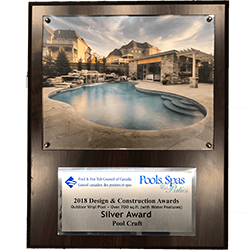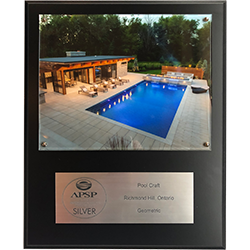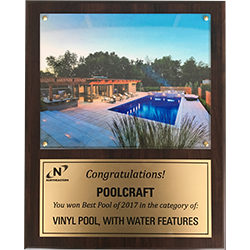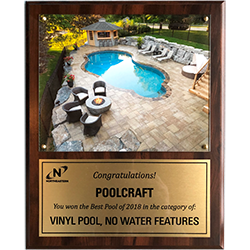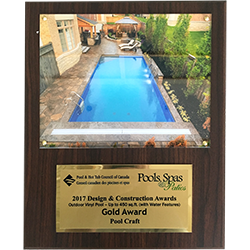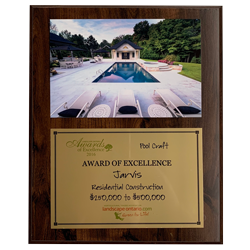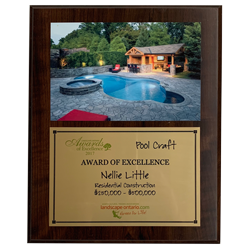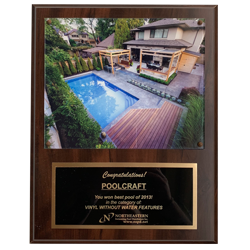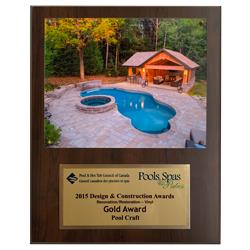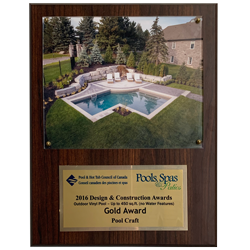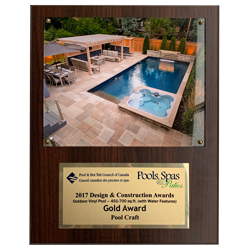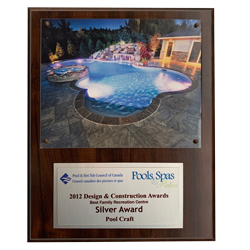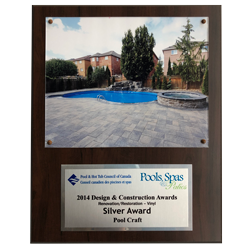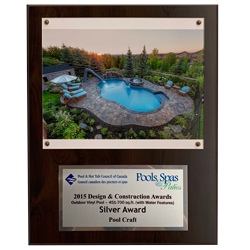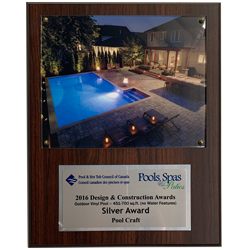If you’re thinking about installing or renovating your backyard swimming pool then you’re probably deep into research mode right now. These days there are more options than ever before in terms of design and materials that can be used to make your new swimming pool.
Chances are you’ve come across the issue of saltwater vs. chlorine swimming pools – and more likely than not you have a few questions.
Here’s a handy summary that you can use to quickly determine if a saltwater pool is right for you!
How saltwater pools work
Swimming in a saltwater pool won’t feel like swimming in the ocean since the salt levels are much lower. In fact, saltwater pools still rely on chlorine in order to help handle the different bacterias that threaten a pool.
A saltwater system uses two titanium plates that are charged and allow the salt to pass through. This breaks down the salt and creates hypochlorous acid in a process called electrolysis. This new product is what disinfects the pool.
Maintenance for this process is much easier and more hands off. The salt cell will create chlorine automatically. You just need to check the levels regularly to make sure everything is running in top condition.
The benefit of saltwater over chlorine
Everything in life has pros and cons. Let’s take a look at some of the main benefits and drawbacks of a saltwater swimming pool
Pros
Less Maintenance: As mentioned above, the process of creating chlorine is much easier to manage. That means less time hauling around chemicals. Assuming you stay on top of any changes or fluctuations, you’ll have a much easier time with maintenance.
Gentle on the Skin: Chlorine has a reputation for making your eyes sting. If you are sensitive to these effects, you’ll be pleased to know that saltwater pools are less irritating to the skin and eyes.
Safer Materials: The chemicals you use in a chlorine pool can be hazardous, whether they are spilled in transport or if they are discovered by a curious child or pet. In comparison, the materials used in a saltwater system are much safer to handle.
Cons
Higher Startup Cost: The initial investment to get all the equipment and materials in place may come to about $5,000 extra to spend on your pool installation. Bear in mind that you’re likely to save money in the long run since a saltwater pool uses less chemicals than a chlorine pool, but you’ll need to account for that initial expense.
More complex: This isn’t an issue if you have a reliable local pool contractor like Pool Craft working with you, but some service technicians might not be familiar enough with the saltwater equipment to do maintenance or fixes.
Impact of salt on materials: Over time, salt can have a negative effect on certain materials, such as underwater lighting or pool equipment. Building with the correct materials should counteract this, but it’s something to keep in mind.
Equipment
A saltwater pool system is made up of a control panel and a salt cell or chlorine generator. You can use the control panel to moderate and adjust the operating times and parameters of the system to fit your schedule.
The salt cell is the part of the system that produces chlorine. This can easily be installed into your pool chain to work with the other components, such as lighting and heating.
After initially adding salt to your pool you only need to add a small amount each year afterwards.
Maintenance
Even though there is less maintenance involved in a saltwater pool you still need to stay on top of any changes in the pool chemistry if you want your swim to be as clean and as healthy as possible.
You should still skim, empty the pump basket and clear the skimmer on a daily basis. Vacuum and stabilizing levels can be done weekly. Take the time for a more detailed check every month and adjust levels as needed.
If you’d prefer to sit back and enjoy the pool without any of the work, you can also talk to a local pool contractor and sign up for their pool service. This helps you get all the enjoyment out of the summer while cutting down on all the work.
What’s the right choice for you?
So which kind of pool should you go for: saltwater or chlorine? Ultimately, the choice is up to you. The best thing to do is to arm yourself with all the knowledge you need to make an informed decision. Talk to a pool builder about any specific issues relating to your backyard or the temperature patterns in your region and they can have some extra advice.
Either way, we wish you all the best in setting up your pool so that you can enjoy a cool and refreshing dip in these hot and humid summer months!


